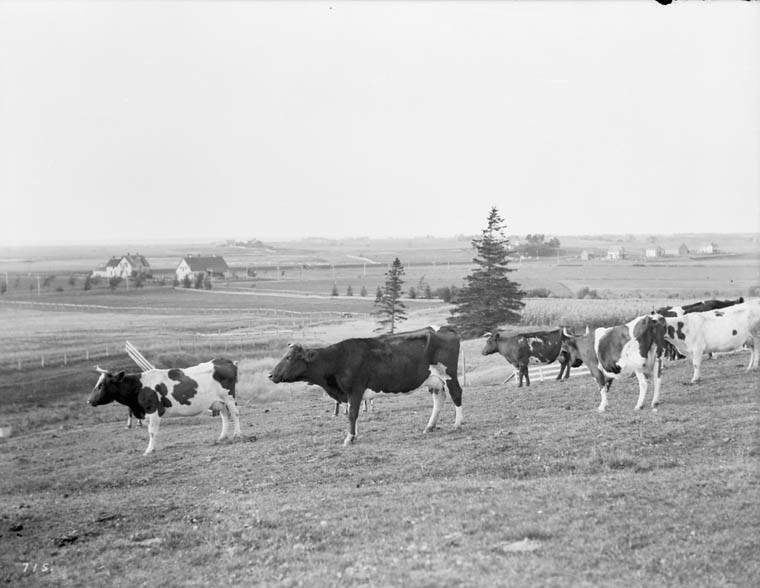There was a field day a few years back where organizers asked the 20 or so people in attendance to introduce themselves by sharing something they’ve learned about agriculture in the past year.
“Be careful what you say about the competition, because tomorrow you might be working for them,” piped up an employee for one of the big chemical companies.
It was sage advice in the era of mergers and acquisitions, which judging from the news of late, is far from over yet.
But those words also come to mind in the context of the 2015 federal election, the end result of which, at this point, is anybody’s guess.
Read Also

Government silence loud on AAFC cuts
Canada’s federal government trumpets fiscal responsibility; their silence on a day of massive Agriculture and Agri-Food Canada cuts was baffling at best.
There’s some concern among farmers and agricultural industry that farm and food issues are getting the short shrift. On one hand, agriculture should be at the top of any politician’s list. After all, without it, we don’t eat. But on the other, it’s understandable why it falls off the political radar. Farmers have done their job so well, consumers have the luxury of taking the availability of food for granted.
And let’s face it. Topics that are important to farmers, such as the Trans-Pacific Trade Partnership and its implications for supply management, research and business risk management are a tough sell against Mike Duffy and a sliding Canadian loonie when campaign organizers are coming up with catchy sound bites.
So there is a concerted effort right now to get farmers engaging with candidates.
It’s not just about deciding who you should support.
The days are long past when the farm vote could determine who ran the country. The reality today is that farmers make up less than two per cent of the population. They must work with who they get.
Which brings us back to the premise so wisely spoken by that chemical company employee.
Your future depends on how well you connect with all the candidates, not just the favoured ones, or the ones deemed by the latest polls most likely to succeed. As Preston Manning once said, it’s not good enough to tell politicians why your proposal is good for you; you must spell out why it’s good for all their constituents, whether or not they come from a farm.
There is another dimension to this reaching-out business that bears careful consideration in the era of social media.
We’ve observed before that farmers and their organizations are pretty good at lobbying the policy-makers. And there is no question that they are an important constituency when it comes to setting the business, environmental, social parameters under which farmers operate.
But events of late leave us wondering whether politicians any longer have much say in the “how” in food production, especially when it comes to farmers’ so-called “social licence.”
In the era of social media, you don’t have to be an expert, or a journalist or an important public figure to gain an audience. You only have to produce a message that people are receptive to hearing.
People with something to say were once restricted to coffee clutches and letter-to-the-editor campaigns. Now they have the potential to reach millions through blogging, tweeting or posting on Facebook.
They aren’t targeting the politicians. They are aiming at the hearts and minds of the people who eat — knowing they will vote with their dollars.
It’s rewriting the book on marketing and changing the dynamics of public engagement.
The Mercy for Animals videos that capture animal abuse in intensive farming operations are changing industry practices, and not only because the abusers are caught and charged under the law. These videos’ impact on people’s opinion of food producers brings about change far quicker than the courts or politicians can deliver.
As a result of the most recent exposé of workers stomping birds on a Tennessee chicken farm, McDonald’s, through its Tyson Foods Inc. cancelled the operation’s contract. That operation is no longer in business.
This wasn’t a political or legal decision. It was market based. It’s swift, unchallengeable, non-negotiable and irrevocable.
Efforts by agribusiness to get laws enacted to protect farmers from this kind of undercover activity are being successfully challenged in the courts. Idaho’s ag-gag law was recently struck down by a judge who ruled it violated the right to free speech. He also found the “how” of food production is a matter of important public interest.
On a brighter note, the Petersen Bros., three Kansas farm boys that became famous worldwide with their parody rap “We’re farming and we grow it,” are examples of how social media outreach can work in agriculture’s favour.
People don’t want slick PR, they don’t want official, or expert opinions. They want to connect. It’s a two-way street.
















